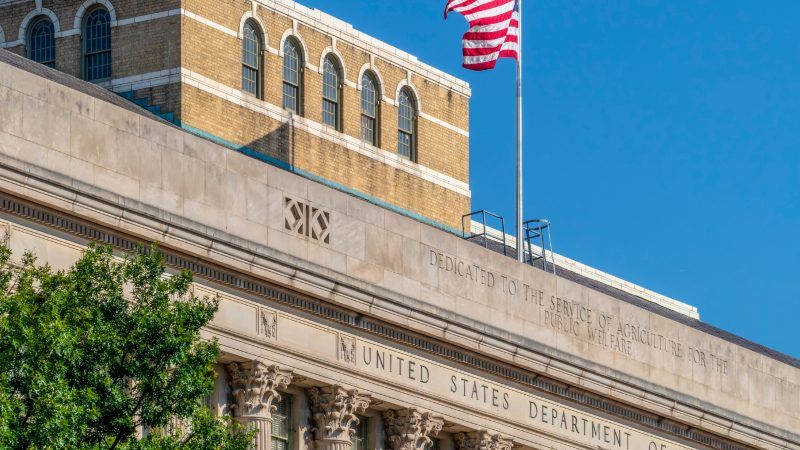Let's Move More Federal Agencies Out of Washington
There's no need for most federal agencies to be stationed in the nation's capital, one of the most expensive cities in the country.

When Agriculture Secretary Sonny Perdue announced plans last year to move some department jobs out of the nation's capital, employees weren't happy. Tensions flared up last week when U.S. Department of Agriculture (USDA) employees turned their backs to the cabinet secretary to protest the decision to move a few hundred USDA workers from Washington, D.C., to Kansas City. Employee objections aside, the idea of moving federal agencies to the heartland is a smart idea, and more agencies should follow the USDA's lead.
The proposal on the table involves moving two federal research agencies, the Economic Research Service and the National Institute of Food and Agriculture, from their current offices to the greater Kansas City area (as of now it's not clear which side of the Kansas City-Missouri border). Roughly 550 jobs would move.
The USDA's cost-benefit analysis found that shifting these two agencies to Kansas City would reduce costs by 11.3 percent, saving taxpayers roughly $300 million (in nominal terms) over the next 15 years. These savings stem primarily from the fact that Kansas City has dramatically cheaper real estate than D.C., as well as marginally lower cost of living. The USDA's report noted that the median sale price of a home (a major factor in determining cost of living for employees) in Kansas City is $205,400, compared to $420,000 in D.C.
Lower real estate costs benefit federal agencies themselves, as well as their employees. According to a report from the Government Accountability Office, the feds spend almost $1.7 billion a year on operating and maintenance costs on underutilized or unused buildings.
Furthermore, as Vox columnist Matthew Yglesias wrote in 2016, there's isn't much reason to keep a lot of government agencies in or near Washington. It makes sense to keep groups involved with "day-to-day politics" or policymaking, like the diplomatic corps, close to the capital. But many agencies are research organizations, and there's no clear purpose in keeping them near the seat of power. For example, the Centers for Disease Control and Prevention (CDC) is headquartered in Atlanta, Georgia, and there aren't many concerns that this distance from Washington impedes the agency's mission.
In the case of these USDA agencies, it might even make a little more sense for them to move to the Midwest. Kansas City is much closer to the heart of American agriculture than D.C. is, and there are already 4,000 USDA employees in Kansas and Missouri, along with universities and companies more focused on farming and animal breeding than their D.C. counterparts.
Moving agencies out of D.C. and into Kansas City will help both cities' economies. The nation's capital is inordinately expensive, in no small part due to zoning regulations that prevent the supply of housing from keeping up with demand. Meanwhile, many Midwestern cities have lost population and suffered economically from de-industrialization.
Similarly, bringing thousands of government workers to the Midwest would bring hundreds of millions of dollars in consumer spending to the local economy, not to mention new jobs. As Yglesias noted, Rust Belt cities that have suffered from post-industrial population decline still have some of the infrastructure necessary to absorb new people without seriously increasing the cost of living.
In fairness to the protesting workers, it's not easy to uproot and move to a different part of the country—especially if one has a family—though the USDA estimates that the relocation packages it will offer to current workers will equal $50,000 per employee. Still, as a matter of public policy, shifting federal agencies out of D.C. is a win-win. If shifting merely 550 jobs can reduce government spending by $20 million a year, consider the possible savings from shifting hundreds of thousands of federal employees into lower-cost states.


Show Comments (62)